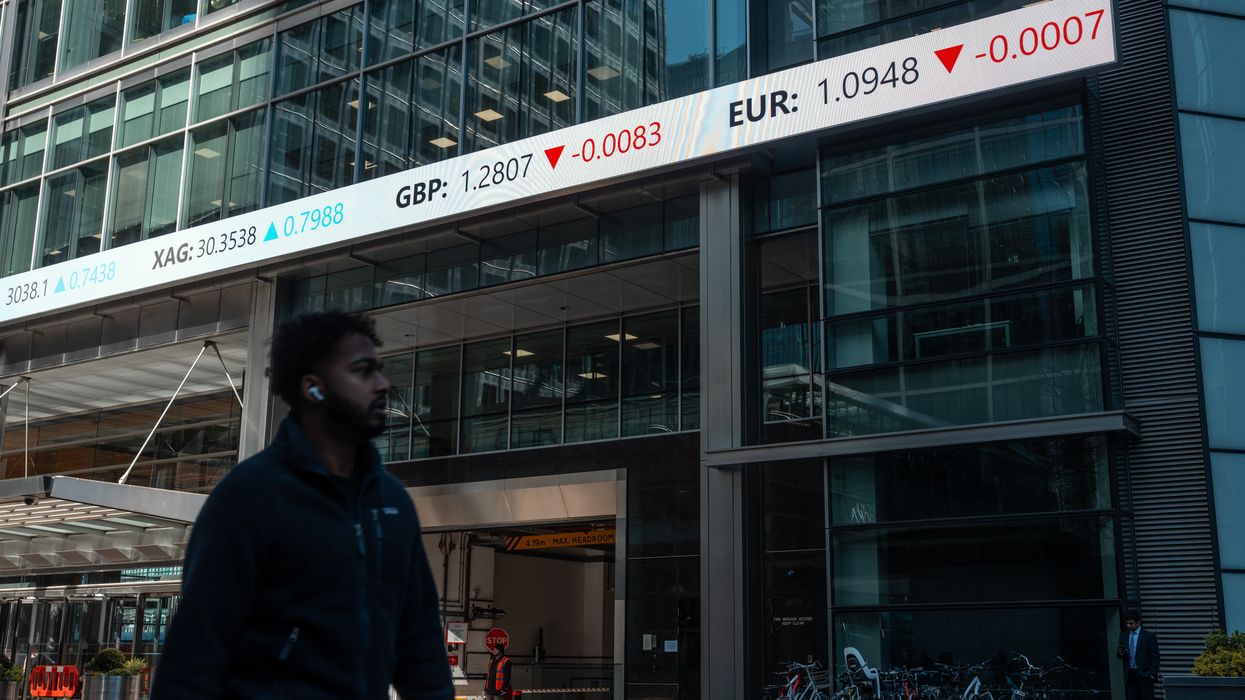THE FTSE 100 dropped to its lowest level in almost 14 months on Monday as concerns over a recession grew following US president Donald Trump’s renewed push on tariffs, which unsettled global markets.
By 1012 GMT, the FTSE 100 index had fallen 3.8 per cent, reaching its lowest point since February 2024.
The FTSE 250, which focuses more on domestic firms, was down 4.1 per cent, hitting levels not seen since November 2023.
Trump said over the weekend that investors “would have to take their medicine” and that he would not make a deal with China until the US trade deficit was addressed.
In response, Beijing said the markets had delivered their verdict on China’s plans to retaliate.
With uncertainty rising, investors raised their expectations for interest rate cuts from the Bank of England. This pushed short-term gilt yields down sharply on Monday.
Interest rate futures now indicate around 88 basis points of cuts to the BoE’s main rate by December, pointing to more than three quarter-point reductions. This was up from about 72 basis points priced in on Friday.
In the US, futures markets also moved to price in almost five quarter-point interest rate cuts this year.
This came despite Federal Reserve Chair Jerome Powell saying on Friday that the Fed “don’t need to be in a hurry” until the economic outlook becomes clearer.
All major sectors on the UK stock market were trading lower. Energy companies, in particular, were down 7.8 per cent, with oil prices falling nearly 4 per cent on recession worries and OPEC+ plans to increase supply.
Shell was among the biggest losers on the FTSE 100, dropping 8.4 per cent after it cut its first-quarter LNG production forecast due to bad weather in Australia.
Shares of Ferrexpo, a miner focused on Ukraine, fell 4.8 per cent. The company reported a 26 per cent drop in first-quarter pellet production after Ukraine suspended VAT refunds, leading to a scale-back in operations.
In separate data, British house prices declined unexpectedly in March, according to figures from mortgage lender Halifax.
The fall is the latest sign of a slowdown in the housing market after a rush to buy homes ahead of a tax break deadline.




